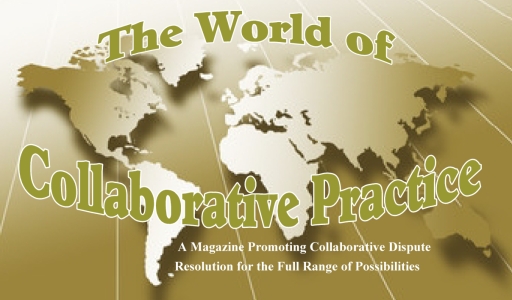
Tags
Related Posts
Share This
Your ‘Initial Consultation’ With An Attorney Should Benefit YOU
Many times people feel frustrated when they meet with an attorney about their divorce. You have had the courage to make the appointment. You are overwhelmed with questions and needs. Your marriage is falling apart and this lawyer does not seem to get it. She/he is asking you all kinds of questions yet this lawyer seems to be either unable or simply unwilling to answer your simplest questions! How long will this take? How much will it cost? What will I end up with? What do you mean “it depends”; I thought you were an ‘expert’?!?!
The basic source of the frustration you feel is that you and the attorney are talking about two different types of transactions. Practicing law is very different from almost every other type of profession.
Pretty much every other person from whom you might buy a ‘service’, can deliver that service as if it were a product. You need an appendectomy? You want to build a house? You need your taxes done? Your car needs servicing? On and on, they all involve a specific end result. And the professional, and you, have a great deal – if not complete – control over making that specific desired result happen.
You hire an attorney, however, to work for you in a process. It’s only after you go through that process that you find out what the end result is. You and your spouse, with the support of the professionals you’ve chosen, quite literally create that end result by reaching decisions along the way. Of course, if you don’t reach joint decisions a judge will make the decisions for you.
Another way of looking at this difference is around questions involving your “rights”. Here the disconnect can be even more stark. Very often people come to a first meeting wanting to know what their “rights” are. And by that they mean they want to know what they are “supposed to” get or “required to” give.
When lawyers talk about “rights”, however, they are usually talking about something completely different. We refer to them as “procedural rights”; your rights to a process. Your “rights” to have relevant information, to have a trial, to convince a judge that you should get what you say you should get even though your spouse says you shouldn’t. These are the “rights” your lawyer navigates in litigation. Not particular results.
Again, the client is focused on that ‘end result’. They ask about their “rights” as if somewhere in all those fancy books, it surely must say exactly what s/he will end up with after the divorce. Meanwhile the attorney is focused on the process involved in agreeing on what the end results will be.
Very few attorneys will actually tell a prospective client what the end results will be. “This is what you will get in the end.” Even if they use language similar to that, there are always qualifiers. “We should be able to…” “Most judges will….” “In my experience we can….”
Of course sometimes it really really sounds to a prospective client like the attorney has told them what they want to hear; told them what the end results will be. I sometimes see a prospective client who says to me “well, this other lawyer told me I should get _________.” My response is always the same. “If that is what you want to receive at the end, then I suggest you return to that lawyer and ask if s/he will give you a written guarantee that s/he will take no fee if they cannot produce that result.” At that point most people really see that they are paying for help with a process, not buying a specific result.
Even with all that said, I don’t mean to suggest that there aren’t questions you should be asking. Before we get to those, though, let’s put something on the table.
When you call or have an appointment with a lawyer, what is really happening? You’ve been told you’re coming in for a “consultation”. The impression is usually that you are coming in to be told something about your divorce. And, at least I think, that feeds the sense of frustration when you aren’t getting clear answers to the how much / how long / what result questions.
So what is going on, really, during this “consultation”? Why it’s a sales pitch. Plain and simple. And the lawyer is making the pitch….for you to hire him/her. That’s right s/he wants to work FOR YOU. It’s a job interview. And YOU are the interviewer.
You actually need to consider whether you want to use this person. You two will be spending considerable time together. How do you feel about that? You don’t have to be crazy mad in love, but if you just plain don’t like your lawyer, do you really want to have to deal with him/her on a regular basis?
That’s pretty fundamental and broad. But I’m also suggesting you look at how this attorney ‘fits’ with what you want to accomplish and the way you want to approach your divorce.
Let’s say you’re looking for a baby sitter or a nanny. You interview one and find that you and she really get along. That’s great. But of course you’re not hiring a friend, you’re hiring someone to take on part of your own role in connection with your children. So it’s pretty important that you come to understand this person’s attitude about certain things. For example, ‘spanking’. So what does s/he consider to be the most productive responses to ‘misbehavior’. Or how will s/he fill the time for your children. What about attitudes toward meals and nutrition in general.
Whether you are hiring a child care worker or an attorney to help you in your divorce, you want to make sure that the professional you hire holds beliefs and abilities and intentions that are consistent with your own. In essence, your lawyer IS you; stands in for you. So you want to make sure that s/he will behave in a way that is consistent with you. And you probably want him/her to be consistent with ‘you at your best’. There may be times when you are tempted to be much less than your best, or are too tired for what it takes to be your best. But why would you hire someone who can only do, let’s say, ‘less than your best’?
So two things you have to get clear about before you begin interviewing potential lawyers, are 1) what kind of relationship do you want to have with your spouse after the divorce? and 2) what do you want it to be like along the way to the divorce?
The lawyer you choose should be a reflection of your answers to those questions. And that reflection should come naturally. It’s very common for attorneys to voice that they are obliged to do as you direct them. That is quite true. Let’s say you really want to have your spouse suffer. Lots of expensive motions; depositions with questions about all kinds of things that you have no reason to believe are true; inflated stories about minor incidents to try to have them declared an unfit parent….. etc. If that is what you want, you would certainly be ill advised to hire an attorney who focuses on, say, Collaborative Practice. Because the things you want done, are not things that come easily for that attorney.
Similarly, if what you wanted was to make sure that you and your soon-to-be-ex are able to work together to reach the necessary decisions; that you each have what you need to move forward after the divorce; that you both will still be able to work together after the divorce for the benefit of your children…. If those are the kind of things you want and the way you want them to be achieved, well, you might not want to hire someone who has 20 or 30 years of litigation experience but who says simply ‘sure, I took a training in Collaborative Practice’. Does the kind of genuine working together that is involved come naturally to this attorney? Is s/he even really comfortable doing it? These are things you need to know.
Keep in mind what this initial meeting is “A sales pitch” and “A job interview”. Don’t be afraid to ask questions about the applicant’s commitment to the kind of process and kind of results you are looking for. “Oh sure, I can do that” wouldn’t prompt you to hire a bricklayer to do your plumbing, would it? No more than “I like kids” would be enough to cause you to hire someone with no experience, education or training to be your Nanny.
So before you begin your attorney interview(s), There are some questions you need to answer for yourself. I offer prospective clients a couple of lists of questions to review for themselves. Here are a few.
- Are you willing to sit in the same room as your spouse and have a direct dialogue on the decisions to be made? Or do you want to avoid contact with him/her as much as possible?
- Are you willing to reach agreements that meet both your needs AND those of your spouse? Or do you insist that you get “as much as possible”?
- Do you believe that your children are best served by having the active involvement of both parents? Or do you want to make sure that you have the greater, or maybe even only, influence following the divorce?
- Do you want help in having dialogue with your spouse about what will work for you both? Or do you need someone to tell you what you ‘should’ ask for, what you ‘should’ agree to?
- When you are upset with your spouse, do you want a professional who will help you sort it out in a way that you can share with him/her? Or do you want one who will simply attack your spouse because that’s what you ‘said you wanted’ while you were upset?
There is no ‘right’ or ‘good’ answer to any of these kinds of questions. The goal is simply to help you determine what is ‘right’ for you.
Answering questions like these for yourself will help you to discern the kind of decisions you want in your divorce, the way you want them reached, AND the kind of attorney you want to work with. Using your answers, you can ask similar questions of the attorney who wants to be hired by you to see if s/he is in fact ‘right’ for you. If s/he is a ‘good’ reflection of you.
After all, you’re the boss. You should only hire someone who will work the way you want things done, right? I wish you successful hiring.
***********
I was recently interviewed on this same topic by Joanie Winberg, creator of the “Survive and Thrive After Divorce BOOT CAMP“, as part of her “Ask Joanie” Seires
Here’s the video:









Carl Michael,
This is a very informative and helpful article. I struggle in my client interviews and you have provided me with a new perspective. Thank you!
Carolann